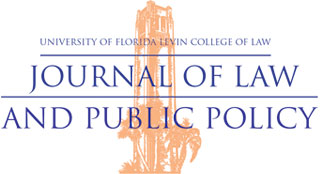
Abstract
This Article examines the privacy implications of new technologies, in particular facial recognition technology (FRT), which uses biometric software to recognize a person’s facial features. When used in conjunction with closed-circuit television (CCTV) or drones, FRT has allowed governments to continuously monitor public places and has helped law enforcement officials to locate and apprehend criminals. But many are uneasy regarding the privacy implications of FRT technology, which can often be unreliable. The difficulty is that the Fourth Amendment imposes few meaningful limits on governmental use of modern technologies in public places, although some states have imposed limitations by statute.
Recommended Citation
Weaver, Russell L.
(2023)
"Privacy in an Era of Advancing Technology,"
University of Florida Journal of Law & Public Policy: Vol. 33:
Iss.
2, Article 4.
Available at:
https://scholarship.law.ufl.edu/jlpp/vol33/iss2/4